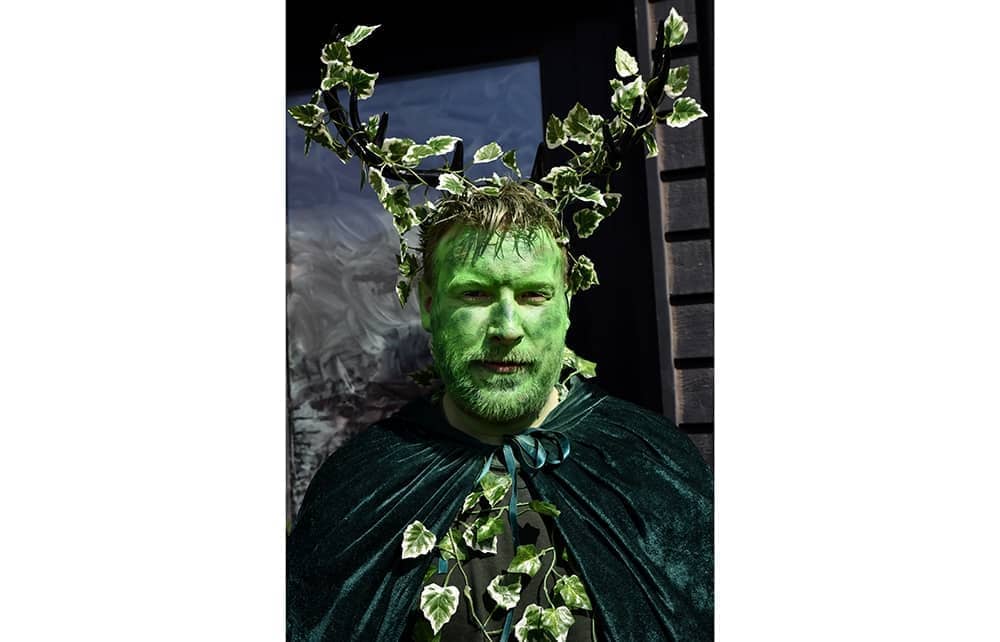I would guess that contemporary pagans have a love-hate relationship with Ronald Hutton. With books such as The Triumph of the Moon and Stations of the Sun, scholarly accounts of the history of modern witchcraft and the ritual year in Britain, no one writes more sensitively about their worldview. On the other hand, as an academic, Hutton assiduously seeks to saw off the branch on which many of their fondest assumptions sit. The paradox can be explained.
Queens of the Wild returns to one of Hutton’s key themes: the debunking of the idea that pagan practices and beliefs survived intact in Europe from archaic times. With characteristic frankness he explains in his preface that the alluring title is the result of a compromise between the demands of the marketing department and his own ‘pedantic anxiety to settle on one that most accurately [reflects] the contents of the book’. It is briefer than his previous works and, with its attractive packaging, this is Hutton at his most accessible. (Some of the essays in the 2003 collection Witches, Druids and King Arthur are formidable indeed.)

The four queens he analyses are Mother Nature, the Fairy Queen, the Lady of the Night – a feature of European folklore – and the Cailleach – an Irish-Scottish hag denoting winter. It’s tempting but unsound to deduce that these commanding figures who stalk legend and poetry are the remnants of a pre-Christian religion, not least because Hutton unpicks the common assumption that an archaic, peaceful goddess- and Earth-worshipping culture predated a male-dominated sky religion. He points out the circularity of the argument that begins with the simple observation of many female figurines being deposited at prehistoric sites and ends with the theory of a pan-European goddess religion, in the light of which any subsequent discoveries are interpreted.
An entertaining feature of his analysis consists in pointing out how recent many supposedly ancient themes and motifs actually are: for example, the folk customs that appear to date back to medieval times but which make their first appearance in the 19th century. (He draws a careful distinction between the possible date of origin of an activity and its appearance in the record.) On this reading, Shakespeare’s otherworldly Oberon and Titania, Ben Jonson’s masques and Spenser’s The Faerie Queene are sophisticated literary innovations rather than references to contemporary beliefs.
His chapter on the Lady of the Night is all the more brilliant for being about a less familiar phenomenon (at least in Britain). A lady who leads a troop of revellers through the night was a feature of German and north Italian folklore. She was sometimes identified as Diana, Hecate or the biblical villainess Herodias and, in one jovial form, ‘the lady of the good game’, she might be the forerunner of Italy’s Epiphany gift-bringer Befana. Hutton tracks her like an expert hunter.
The chapter which exceeds the stated brief is the most definitive of all: his epilogue on the Green Man, whose leafy face adorns many a medieval church roof boss. Participants in the Jack-in-the-Green parade in Hastings may feel the springtime rite to be thrillingly ancient, but the notion that he represents a venerable and widespread vegetation deity is another surprisingly modern concept. Hutton’s survey takes in pub signs, the Wild Man, Gawain’s adversary the Green Knight and the May-Day capers of Georgian chimney sweeps. The polite but firm endnote in which he explains his reason for rejecting an editor’s suggestion that he concentrate instead on the bawdy figure of Sheela na gig, in keeping with the feminine theme, is masterly.
In all of this, Hutton neither negates the value of worship of such deities in modern Wicca nor even denies their possible objective existence. Most obviously, they are a rich resource for artists and writers, exploited to the full in England on Fire, a compendium of images hinting heavily at the occult and unseen. Under chapter headings such as ‘Enchantment’, ‘Arcadia’ and ‘Visions’, the Suede bassist Mat Osman provides a linking tale wherein the sardonic ‘Tyburn boy’, part Johnny Rotten, part Shakespearean fool, leads the reader through the decay and mysterious survival of ‘England’s Dreaming’. The image curator, Stephen Ellcock, places rare oddities alongside such obvious choices as Samuel Palmer’s charged visions of the Weald; Henry Fuseli, William Blake, Richard Dadd, Paula Rego and John Atkinson Grimshaw jostle with old photographs, sinister ceramics, book illustrations and the daubs of outsider artists. The standout is Dan Hillier, b.1973, who provides the haunting cover image of a robed and antlered figure against a full moon. Just don’t call him King of the Witches, or Hutton will be after you.






Comments